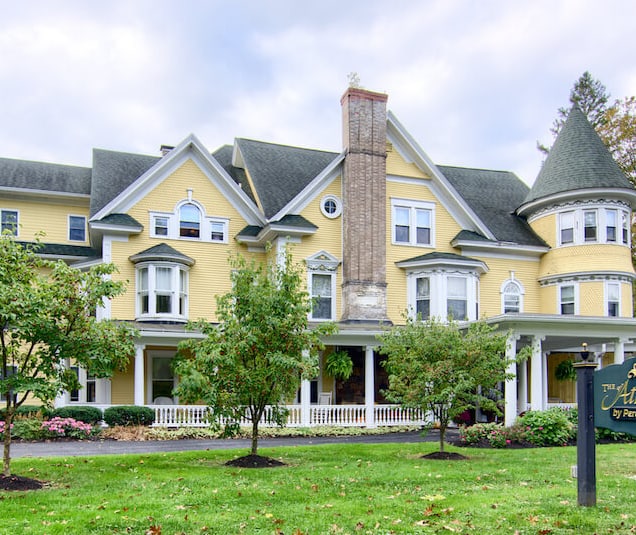Adjusting to the shifting needs of our parents as they age is a part of life. The considerations around living arrangements for aging loved ones are complex and often tied to emotional, financial, and logistical factors. Some signs it may be time to consider a senior living home for your parent are:
- A decline in their health
- Safety concerns in their daily lives
- You notice they are becoming socially isolated
The concept of a ‘home’ is beautifully versatile—it can be a legacy of memories, a safe sanctuary, or a community hub. But as the challenges of aging unfold, the traditional interpretation may evolve into one of safety-enhanced environments and specialized care.
Understanding Senior Living Options
The first step is understanding the array of senior living options available, each tailored to meet specific needs and circumstances.
Aging in Place
Aging in place is a robust trend that advocates for seniors to remain in their homes for as long as it’s safely feasible. Technological advancements and in-home care services have tremendously bolstered the capacity of this model.
It allows seniors to maintain their sense of familiarity and independence while receiving the necessary health and household support through regular visits from healthcare providers or full-time caregivers.
But as we champion this independent spirit, it’s crucial to assess the home environment and ensure that it’s adaptable to the changing needs of aging. In-home adjustments may be required to account for mobility challenges, vision and hearing loss, and other age-related issues.
Assisted Living
Assisted living communities offer a supportive environment where residents can retain much of their independence while benefiting from tailored assistance with daily activities, medication management, and meal services. These settings are best suited for seniors who require some level of care but don’t need the comprehensive medical attention provided by a nursing home.
Assisted living also fosters social interaction through planned activities and shared spaces, catering to residents’ emotional and psychological well-being. This supportive atmosphere often allays the fears of isolation that can nag at loved ones who remain at home.
Nursing Homes
Nursing homes are designed for seniors who require 24-hour medical supervision and assistance. They provide a higher level of care, including round-the-clock monitoring of health conditions, rehabilitation services, and assistance with daily living activities.
While these communities can be the most effective in cases where substantial care is needed, the transition to a nursing home often marks a milestone where an individual’s need for independence takes a backseat to their health requirements.
But even in a nursing home, the focus is increasingly shifting towards maintaining dignity and recognizing the joys of life through tailored care programs.
Signs It’s Time for a Change
Recognizing when the time is right for a change is relative, as the needs of every senior are unique. But common signs that may signal it’s time to explore different living arrangements include:
Declining Health
Observing changes in your parent’s health, such as increased falls, medication mismanagement, or the onset of chronic conditions that require more hands-on care, could indicate it’s time for a change. Sometimes, moving to an assisted living community may be all your parent needs for safety and an improved quality of life.
Safety Concerns
A noticeable decline in mobility or cognitive functions can lead to safety hazards at home. These may include difficulty managing stairs, poor navigation abilities, or neglecting to attend to household maintenance, which can result in accidents.
Social Isolation
Social engagement is vital for seniors’ mental well-being. If you notice your parent withdrawing from social activities due to challenges like transportation or health issues, this could be a significant red flag. Having a community close at hand in a similar situation may benefit them.

Navigating the Conversation
The subject of changing living arrangements with a parent can be one of the most difficult conversations an adult child faces. Here are some tips on approaching it with compassion and respect.
Empathetic Listening
Start the dialogue with understanding your parent’s perspective and emotions. Position the conversation as a collaborative exploration rather than a directive, and actively listen to their concerns and desires.
Inclusive Decision-Making
Involve your parent in the decision-making process as much as is feasible. Their sense of agency and autonomy can ease the emotional toll of transition.
Professional Guidance
Consider enlisting the expertise of someone who specializes in senior care. They can provide invaluable advice on legal, financial, and care-related issues, and their input can lend a sense of objectivity to the discussion and planning process.
Making the Transition
Meticulous planning will help facilitate a smoother transition process to a different living situation.
Research potential senior living communities and visit them, preferably more than once, to observe daily operations and evaluate the level of care and the atmosphere.
Developing a step-by-step plan with key timelines can help keep the process organized. Identify tasks such as downsizing, selling the family home, and organizing medical records, and delegate where possible.
Find Senior Care that Fits Your Parent’s Life
Whether an aging parent should move to a senior living residence is a deeply personal, often complex decision and deserves thoughtful consideration. It reflects the mutual love and respect in the parent-child relationship and the shared pursuit of a dignified, fulfilling life.
Call our team at Peregrine Senior Living at The Athenaeum of Skaneateles to book a community tour. We’d love to show you how life in our community can help give your loved one a quality of life that enables them to enjoy their golden years.









No more posts